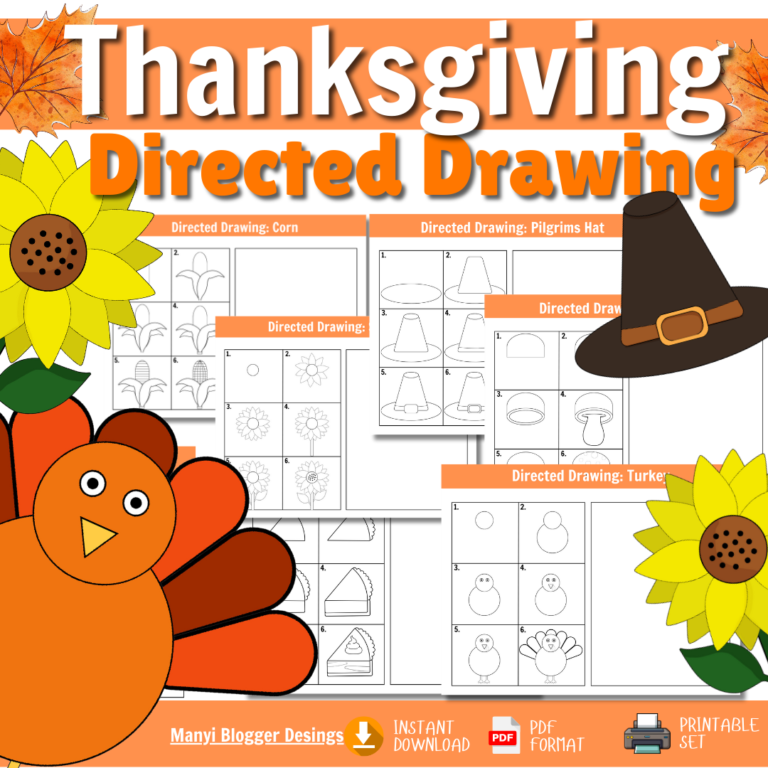
This guide contains affiliate links to products on Amazon. As an Amazon Associate, I earn commissions from qualifying purchases at no extra cost to you. These commissions help support my blog and enable me to provide valuable resources for aspiring online teachers. I appreciate your support and trust in my recommendations!
1. Types of Online Teaching Interviews
As a woman who has spent the last 15 years teaching English, I’ve navigated my fair share of interviews and have now dedicated my time to helping hundreds of trainers successfully pass their onboarding process at language teaching schools. Understanding the different types of online teaching interviews is crucial for anyone entering this field.
- One-on-One Interviews: I remember my first one-on-one interview vividly. It felt like a personal conversation where the interviewer wanted to gauge my teaching skills and personality. In this format, it’s essential to be genuine and showcase your passion for teaching.
- Panel Interviews: Then there are panel interviews, which can be a bit more intimidating. When I faced a panel for the first time, I felt the pressure of multiple eyes on me. This format allows several interviewers to ask questions simultaneously, so it’s vital to engage with each of them during your responses.
- Teaching Demonstrations: I’ve found that teaching demonstrations can be the most revealing part of the interview process. They require you to conduct a sample lesson in front of the interviewers. Make sure to practice your lesson thoroughly and be prepared to answer questions about your teaching methods.
2. Common Interview Formats
Being well-versed in the common interview formats can set you apart from other candidates:
- Video Calls: Today, video conferencing platforms like Zoom and Skype are staples in the interview process. I always ensure that my setup is reliable and that I’m comfortable with these tools to avoid technical hiccups during the interview.
- Pre-Recorded Interviews: I’ve also experienced pre-recorded interviews, where I had to answer pre-set questions on camera. These can feel a bit strange since you’re talking to a screen, but I found that practicing beforehand helped me articulate my thoughts clearly.
- Assessments and Teaching Samples: Some institutions may require you to submit or present sample lesson plans. I recommend preparing a few of your best lesson plans in advance, showcasing your teaching style and adaptability.
3 What Interviewers Look For
After years of helping aspiring teachers navigate their online teaching interviews, I’ve learned that there are several key qualities that interviewers look for in candidates. Understanding these factors can help you tailor your preparation and showcase your strengths effectively.
1. Qualifications and Experience
One of the first things interviewers will consider is your qualifications and experience. With 15 years in the teaching field, I can tell you that having the right credentials is essential.
- Relevant Certifications: For online teaching, certifications like TEFL (Teaching English as a Foreign Language) or TESOL (Teaching English to Speakers of Other Languages) are often required. These qualifications demonstrate that you have the foundational knowledge and skills to teach effectively. I encourage my trainees to obtain these certifications and highlight them prominently on their resumes and during interviews. You can find various TEFL and TESOL certification programs on Amazon, like The Complete Guide to Teaching English Abroad.
- Teaching Experience: While certifications are important, practical experience is equally crucial. Share your teaching journey, including the different age groups you’ve taught and the diverse learning environments you’ve worked in. This helps interviewers see that you can adapt your teaching style to meet the needs of various students.
2. Teaching Skills and Techniques
Beyond qualifications, interviewers are eager to assess your teaching skills and techniques. They want to know how you engage with students and create a positive learning environment.
- Classroom Management Strategies: I often emphasize the importance of having solid classroom management techniques. Interviewers will likely ask how you handle disruptions or engage students who are struggling. A great resource to prepare for this is The Classroom Management Book, which offers effective strategies to maintain a productive atmosphere.
- Adaptability and Flexibility: The online teaching landscape is constantly evolving, and being adaptable is key. Share instances where you adjusted your teaching methods to suit different learning styles or technologies. This demonstrates your commitment to student success.
- Engagement Strategies: Engage interviewers by discussing your creative strategies for keeping students motivated. Whether it’s using interactive activities or incorporating technology into your lessons, make sure to convey your enthusiasm for fostering a dynamic learning environment. For tips on engaging students, consider Teaching with Technology: A Practical Guide.
3. Technical Skills
As online teaching becomes more prevalent, interviewers are increasingly looking for candidates who are tech-savvy.
- Familiarity with Online Teaching Tools: Highlight your experience with various online teaching platforms, such as Google Classroom or Zoom. I’ve found that demonstrating proficiency with these tools can set you apart from other candidates. If you need to brush up on using these platforms, consider picking up Teaching Online: A Practical Guide.
- Ability to Troubleshoot Basic Tech Issues: During interviews, be prepared to discuss how you handle technical difficulties. Sharing a story about a time when you resolved an issue during a lesson can show your problem-solving skills and resourcefulness.
4. Communication Skills
Strong communication skills are at the heart of effective teaching. Interviewers will be assessing how clearly and confidently you express your ideas.
- Clarity in Verbal Communication: Throughout the interview, focus on speaking clearly and concisely. Practice articulating your thoughts on various teaching topics, ensuring that you sound confident and knowledgeable. A helpful tool for improving verbal communication is The Art of Communicating.
- Active Listening Skills: Show that you can listen and respond thoughtfully to questions. This not only helps you understand what the interviewer is asking but also demonstrates your ability to engage with students and colleagues alike.
5. Cultural Awareness and Sensitivity
In our diverse world, cultural awareness and sensitivity are vital for effective teaching.
- Understanding of Diverse Learning Backgrounds: Share your experiences working with students from various cultural backgrounds. Interviewers appreciate candidates who recognize and value diversity in the classroom. A great resource for this is Culturally Responsive Teaching and The Brain, which provides insights on how to effectively teach diverse learners.
- Ability to Connect with Students from Various Cultures: Discuss strategies you use to create an inclusive environment where all students feel valued and heard. This can include modifying lesson plans to be culturally relevant or using examples that resonate with a diverse audience.
Preparing for Your Interview
Preparing for your online teaching interview can be both exciting and nerve-wracking. Having gone through this process many times, I want to share some effective strategies that will help you put your best foot forward. Here are the steps you should take to prepare thoroughly.
1. Researching the Organization
Before stepping into any interview, it’s crucial to understand the organization you’re applying to. This knowledge can help you tailor your answers and demonstrate your genuine interest.
- Visit Their Website: Take time to explore the organization’s website, paying attention to their mission, values, and teaching philosophy. This will give you insight into what they prioritize in their educators.
- Read Reviews and Testimonials: Look for reviews on platforms like Glassdoor or Google to understand the experiences of other teachers. This can provide valuable context for your interview and can even guide your questions.
- Check Their Social Media: Follow their social media accounts to get a sense of their community and engagement with students. You can also mention relevant social media initiatives during your interview.
2. Preparing Your Teaching Portfolio

Your teaching portfolio is a powerful tool to showcase your skills and experience.
- Gather Sample Lesson Plans: Include lesson plans that highlight your teaching style and adaptability. If you’re looking for resources to create effective lesson plans, consider The Lesson Planning Handbook.
- Highlight Student Work: Include examples of student work to demonstrate the impact of your teaching. This could be projects, assessments, or feedback from students.
- Create a Digital Portfolio: If you haven’t already, consider creating a digital portfolio. Tools like Canva, Google Sites, or Wix make it easy to build a professional-looking portfolio that you can share during the interview.
3. Practicing Interview Questions
Preparation is key when it comes to interviews. Here’s how to practice effectively:
- Common Interview Questions: Familiarize yourself with common interview questions for online teaching positions. Some favorites include:
- What is your teaching philosophy?
- How do you handle difficult students?
- Describe a successful lesson you’ve taught.
- Mock Interviews: Consider doing mock interviews with a friend or colleague. This can help you practice your responses and get comfortable speaking about your experiences. For added structure, you might want to use a guide like The Complete Interview Handbook.
4. Setting Up Your Interview Space
The environment where you conduct your interview can significantly impact the impression you make. Here are some tips for setting up your space:
- Choose a Quiet Location: Find a space free from distractions and noise. This not only helps you focus but also allows the interviewer to hear you clearly.
- Professional Background: Make sure your background looks tidy and professional. If your environment isn’t suitable, consider using a plain backdrop or a virtual background on platforms like Zoom.
- Lighting and Camera Angle: Good lighting can enhance your appearance on camera. I recommend using the Neewer Ring Light Kit to ensure you’re well-lit. Also, position your camera at eye level for a more engaging conversation.
5. Dressing for Success
Your appearance can make a lasting impression, even in a virtual setting. Here’s how to dress appropriately:
- Professional Attire: Dress as you would for an in-person interview. A smart blazer or a professional blouse can make you look polished. Check out options like Women’s Blazers or Men’s Dress Shirts to find something that fits your style.
- Minimal Accessories: Keep accessories minimal to avoid distractions. A simple necklace or a classic watch can add a nice touch without overwhelming your look.
6. Gathering Questions to Ask the Interviewer
Having questions prepared to ask your interviewer can demonstrate your interest in the position and help you determine if the organization is the right fit for you.
- Questions about the Curriculum: Inquire about the curriculum you would be teaching and how it aligns with the organization’s mission.
- Professional Development Opportunities: Ask about the professional development resources available for teachers. A question like, “What opportunities are there for continued education and growth?” shows that you are committed to your professional journey.
4. Tips for a Successful Interview
As someone who has spent years in the education field and has guided countless aspiring teachers through their interview processes, I’ve gathered some valuable tips that can significantly enhance your performance during your online teaching interview. Here’s how you can make a lasting impression.
1. Be Yourself
Authenticity is key in any interview. Remember, interviewers are looking for candidates who will fit well into their teaching community.
- Show Your Passion for Teaching: Be open about your love for teaching and working with students. Share personal stories or experiences that highlight your dedication. This not only makes you relatable but also allows interviewers to see your genuine enthusiasm.
- Be Honest About Your Experience: If you lack experience in a certain area, it’s okay to admit it. Instead, focus on your willingness to learn and adapt. You can express this by saying something like, “While I haven’t taught that specific age group, I am excited about the opportunity to learn and grow in this area.”
2. Engage with the Interviewers
Creating a connection with your interviewers can set you apart from other candidates.
- Make Eye Contact: Even in a virtual setting, try to make eye contact by looking directly into the camera when speaking. This helps establish a personal connection and shows your confidence.
- Use Names: If there are multiple interviewers, try to address them by name during the conversation. This small gesture can make a big difference in how connected you feel with them.
3. Demonstrate Your Teaching Style
If the opportunity arises, use the interview to showcase your teaching style and methods.
- Share Interactive Examples: Bring examples of how you engage students in the classroom. For instance, you might mention a successful group project or a unique activity that encouraged participation. If you’re looking for fresh ideas, consider resources like 101 Ways to Make Training Active.
- Be Prepared for a Demonstration: If the interview requires you to teach a sample lesson, practice beforehand to ensure you are comfortable with the material. Having a structured plan will help you stay focused and confident.
4. Stay Calm Under Pressure
Interviews can be stressful, but remaining calm can help you think clearly and communicate effectively.
- Practice Relaxation Techniques: Before the interview, practice deep breathing or visualization techniques to calm your nerves. Tools like The Relaxation and Stress Reduction Workbook can provide valuable strategies for managing anxiety.
- Take Your Time to Respond: If you’re asked a question, take a moment to gather your thoughts before answering. It’s okay to pause briefly; this shows you are thoughtful and considerate in your responses.
5. After the Interview
Congratulations! You’ve completed your online teaching interview, and now it’s time to focus on what happens next. The period following your interview is just as important as the preparation leading up to it. Here are some key steps to take to ensure you stay proactive and maintain a positive impression.
1. Send a Thank-You Note
One of the most impactful things you can do after your interview is to send a thank-you note.

- Personalize Your Message: Within 24 hours of your interview, send a personalized thank-you email to each interviewer. In your message, express gratitude for their time and reiterate your enthusiasm for the position. For tips on crafting the perfect thank-you note, check out The Art of Thank-You Notes.
- Mention Specific Topics: Reference specific points discussed during the interview to make your note more personal and memorable. This shows that you were engaged and that you value their insights.
2. Follow Up on the Application Status
If you haven’t heard back within the timeframe they provided (or after about a week if no timeframe was mentioned), it’s completely appropriate to follow up.
- Draft a Brief Follow-Up Email: Politely inquire about the status of your application. Keep it concise and express your continued interest in the position. You might say something like, “I hope this message finds you well. I wanted to follow up regarding my application for the [position] and see if there are any updates.”
3. Reflect on Your Interview Experience
Taking time to reflect can be invaluable for your personal and professional growth.
- Analyze Your Performance: Consider what went well during the interview and what could be improved for future interviews. Keeping a journal can be helpful here. I recommend using The 5-Minute Journal to capture your thoughts and reflections.
- Identify Strengths and Areas for Growth: Write down specific examples from the interview that highlight your strengths, as well as areas where you felt less confident. This can help you prepare for future interviews and recognize patterns in your responses.
4. Continue Learning and Networking
The world of online teaching is ever-evolving, and ongoing learning is crucial.
- Join Online Communities: Engage with other educators through forums, social media groups, or professional organizations. Platforms like Facebook or LinkedIn often have groups specifically for online teachers. Connecting with others can provide valuable resources and support.
- Invest in Professional Development: Consider taking courses or attending webinars to enhance your skills and knowledge. Resources like Teaching Online: A Practical Guide can help you stay updated on best practices in online education.
5. Prepare for the Next Steps
If you receive an offer, congratulations! But even if you don’t, preparation for what comes next is essential.
- Negotiate Your Offer: If you receive an offer, be prepared to negotiate your terms if necessary. Resources like Negotiating Your Salary: How to Make $1000 a Minute can provide valuable insights into how to approach salary discussions.
- Reflect on Your Goals: If you don’t get the position, take time to reflect on your career goals. Consider what you want in your next opportunity and how you can align your job search with your aspirations.
6. Stay Positive and Persistent
Rejection is a part of the job search process, and it’s important to maintain a positive mindset.
- Practice Self-Care: Remember to take care of yourself during this time. Engage in activities you enjoy, such as reading, exercising, or spending time with friends. Books like The Gifts of Imperfection can help you cultivate self-compassion and resilience.
- Keep Applying: Don’t let one interview define your journey. Keep applying to other positions and leverage what you learned from this experience to strengthen your future applications.
6. Common Mistakes to Avoid
Throughout my 15 years of teaching and guiding aspiring educators, I’ve seen candidates make various mistakes that can hinder their chances of success in online teaching interviews. Learning what to avoid can be just as valuable as knowing what to do. Here are some common pitfalls and how you can steer clear of them.
1. Lack of Preparation
One of the most significant mistakes candidates make is failing to prepare adequately for their interviews.
- Not Researching the Organization: Failing to understand the organization’s values, mission, and teaching philosophy can make you seem disinterested. Take the time to research their website and social media. If you want to read more about effective research techniques, check out The Ultimate Guide to Job Interviewing.
- Neglecting to Prepare for Common Questions: Many candidates walk into interviews without practicing common questions. This can lead to rambling or unstructured answers. Prepare by rehearsing your responses with a friend or family member.
2. Overemphasizing Credentials Over Experience
While your qualifications are essential, it’s crucial to balance them with relevant teaching experience.
- Focusing Solely on Degrees: Interviewers are interested in how you apply your education in real-world situations. Instead of just listing your degrees, share stories that highlight your teaching philosophy and methodologies. Books like Teach Like a Champion can provide practical insights into effective teaching practices.
3. Poor Communication Skills
Effective communication is vital in any interview, especially in online teaching.
- Mumbling or Speaking Too Quickly: Nervousness can lead to unclear speech. Practice speaking clearly and at a moderate pace. Consider using a resource like The Elements of Eloquence to improve your verbal communication skills.
- Failure to Listen: Active listening is just as important as speaking. If you find yourself interrupting the interviewer or not fully understanding their questions, practice active listening techniques. Tools like Crucial Conversations can help improve your communication skills.
4. Neglecting to Showcase Your Teaching Style
In online teaching interviews, it’s essential to illustrate your unique teaching approach.
- Not Providing Concrete Examples: Candidates often fail to share specific examples of their teaching experiences. Instead of giving generic answers, detail particular lessons or projects that demonstrate your effectiveness. A resource like The 5 E’s of Teaching can help you frame your teaching experiences.
5. Dressing Inappropriately
Your appearance plays a significant role in the impression you make during an interview.
- Choosing Casual Attire: Even though the interview is virtual, dressing too casually can send the wrong message. Opt for professional attire to convey seriousness about the position. If you need ideas for professional clothing, check out the Women’s Professional Clothing or Men’s Dress Pants sections on Amazon.
6. Failing to Ask Questions
Not asking questions can make you seem uninterested or unengaged.
- Not Inquiring About Professional Development: Asking about growth opportunities shows your commitment to your career. Prepare thoughtful questions about the organization’s approach to teacher development and support.
- Avoiding Questions about Student Engagement: You can gain valuable insights by asking how the organization fosters student engagement and community. Questions like, “What strategies does the team use to connect with students?” can help you understand the culture better.
7. Ignoring Body Language
Even in a virtual interview, your body language can communicate a lot.
- Slouching or Looking Distracted: Poor posture can convey disinterest. Make a conscious effort to sit up straight, maintain eye contact, and smile. Consider reading The Definitive Book of Body Language to better understand how non-verbal communication can impact your interviews.
8. Not Following Up
Failing to follow up after the interview can be a missed opportunity to reinforce your interest.
- Skipping the Thank-You Note: Many candidates overlook this simple yet effective gesture. A personalized thank-you email can make you memorable and reinforce your enthusiasm for the position.
Products to Enhance Your Interview Preparation
To help you feel fully prepared for your online teaching interview, I’ve curated a list of essential products that I found invaluable throughout my journey:
Technical Tools: It’s essential to be familiar with various online teaching tools. I encourage you to explore different resources and software on Amazon to find those that fit your teaching style and needs.
Webcams: A high-quality webcam is essential for making a great first impression. I recommend the Logitech C920 HD Pro Webcam. It provides excellent image clarity, which can make a significant difference during video interviews.
Microphones: Clear audio is crucial for effective communication. The Blue Yeti USB Microphone has been a game-changer for me, offering fantastic sound quality that ensures my voice comes through clearly.
Lighting Kits: Good lighting can enhance your presentation considerably. I always use the Neewer Ring Light Kit to ensure I’m well-lit during interviews, helping me appear professional and engaged.
As a 37-year-old Latin American woman with 15 years of experience in teaching, I’ve had the privilege of mentoring countless educators through the onboarding process at various language teaching schools. Each of these experiences has reinforced the idea that preparation, self-awareness, and authenticity are essential to succeeding in an online teaching interview.
In this guide, I’ve shared insights into the entire interview process—from understanding what interviewers look for to preparing your teaching portfolio, navigating the interview itself, and following up afterward. Here’s a quick recap of what we’ve covered.
Conclusion
- Understanding Interview Expectations: Knowing what interviewers are looking for helps you tailor your responses effectively.
- Preparing Thoroughly: Researching the organization, crafting your teaching portfolio, and practicing common interview questions are crucial for building confidence.
- Making a Great First Impression: Engaging with interviewers and showcasing your teaching style can leave a lasting impact.
- Navigating Post-Interview Steps: Sending a thank-you note and reflecting on your performance can solidify a positive impression.
- Avoiding Common Mistakes: Recognizing and steering clear of pitfalls, such as lack of preparation or poor communication skills, can enhance your chances of success.
Now, as you embark on your journey to secure an online teaching position, I encourage you to approach each interview with the mindset of learning and growth. Remember that every experience is a stepping stone toward your career aspirations.
And finally, don’t hesitate to equip yourself with the resources mentioned throughout this guide, whether it’s a teaching handbook or professional attire. Each little detail can contribute to your overall presentation.
I believe in your potential as an educator, and with dedication and perseverance, you will find the right opportunity to make a difference in the lives of your students. Good luck, and may your journey be filled with success and fulfillment!






